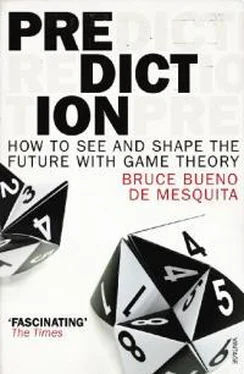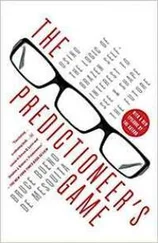SPARTA’S GALLOPING DECLINE
Sparta, you will recall, won the Peloponnesian War (431–404 B.C.), defeating Athens and emerging as the leading power in Greece and perhaps the world. Yet just thirty-three years later, Sparta was handily defeated by Thebes at the battle of Leuctra. So, in the span of a generation and a half, Sparta went from victory in the age’s equivalent of a world war to a defeat from which it never recovered. How could Sparta go from the pinnacle of glory—the United States of its time, the hegemon, the greatest power on earth—to the nadir of defeat—the vanishing Austro-Hungarian Empire of its day—in a mere third of a century? The answer: They loved their horses more than their country.
Pythagoras died about three generations before Sparta defeated Athens. I mention this to call attention to the fact that the essentials of basic mathematics, especially geometry (but not probability), were readily available to educated Spartans. Their system of government emphasized education, although military prowess was a much greater focus than what we today might call book learning. Still, the Spartans could have assembled a team of mathematicians or political consultants to work out the dangers inherent in the course they followed between their great victory in 404 and their decisive and disastrous defeat by Thebes at Leuctra three decades later. Had they done so, they would have seen that their military success put their state at risk because it changed who got to vote and therefore who got to govern. As we know, voting rules can fundamentally change the very direction of politics. They did for Sparta.
To understand what happened we need to take a brief look at how Sparta was governed. Theirs was a strange and complicated form of government. Citizens, known collectively as Spartiates, were a small part of the population. By 418 B.C. the male Spartiate population fell to around 3,600 from its peak at 9,000. This was out of a total population in Sparta (including a vast majority of slaves) of approximately 225,000. After the defeat at Leuctra in 371 B.C., the Spartiates consisted of fewer than a thousand men, and it kept dropping after that. The number of people who ran the show was plummeting, for reasons directly linked to their victory in the Peloponnesian War. As we saw in Chapter 3, change begets change.
The male Spartiates elected their leaders by shouting loudest for the most desired candidates. How strong the shouts were for different candidates was determined by judges behind a curtain (or in a nearby cabin, unable to see, but able to hear the assembled citizenry) so that they did not know who voted for whom. In this way, the Spartans chose the two people who would simultaneously rule as kings (I said it was a strange and complicated form of government). They likewise chose the Gerousia (a select group of men over sixty who served for the remainder of their lives once elected), and the Ephors, who were elected to a one-year term.
The kings were in charge of military matters and national security. The Gerousia—Sparta’s senior-citizen leaders—set the legislative agenda, while the Ephors had financial, judicial, and administrative power. They even had the authority to overrule the kings, while the Gerousia could veto decisions by the assembly of Spartiates. Under Sparta’s system of checks and balances, Ephors could trump the kings and the Gerousia could trump the Ephors. That made it hard for any one of these elected groups to assert full control over Sparta’s government.
Male Spartiates had the privilege of serving in the army, defending Sparta against its enemies. This was the driving force behind Spartiate life and the defining principle that reflected what Sparta stood for above all else. Spartan citizens were meant to be devoted to their city-state and to be better prepared than any rival to defend themselves and their society. Spartan warriors either died on the battlefield (carried home on their shields) or they returned home alive (and presumably victorious) holding their shields. Any Spartan who returned from battle without his shield was vilified forever as a coward, no matter what heroic deeds he might later perform.
In addition to military service, Spartiates were obliged to sponsor monthly banquets for their groups of fifteen, known as syssitions . Failure to pay one’s fair share to maintain the syssition and its banquets meant losing citizenship. As the term “spartan” now betokens, the banquets were not lavish affairs. They were carefully scripted to ensure equality among all Spartiates. They were occasions for sharing with one’s comrades and also providing for the impoverished masses that benefited from the leftovers.
Victory in the Peloponnesian War, however, created new ways to amass great wealth, especially among the military officers assigned to govern the lands conquered by Sparta. With the empire growing, the uneven distribution of wealth between those Spartiates who controlled colonies and those who did not steadily eroded the Spartan commitment to relative equality among the citizens. This growth in empire led quickly to two disastrous consequences.
First, the newfound wealth led to more lavish banquets. Here, like the earlier example of a failed pharmaceutical merger, the dinner menu turns out to have mattered for the future course of events. This time, however, the cost was much bigger than the failure of a lucrative business opportunity. The more upscale menu may have changed the course of history. As the price of obligatory banquets went up, many Spartiates were compelled to drop out of their syssition because they could not afford the costs. This meant that they lost their rights as citizens. So when it came time to vote for leaders, some citizens were now disenfranchised ex-citizens. They couldn’t satisfy the requirements and so they lost their right to vote. The voting rules, tied as they were to providing what had become expensive banquets, shifted control over Sparta from the relatively many (a few thousand) to the few wealthiest citizens (hundreds rather than thousands).
Second, the cost of maintaining citizenship distorted careers, diminished commitments to remain in Sparta, and turned the political fabric of Spartan life upside down. Young men increasingly chose military commands outside the city-state proper rather than staying at home. They aggressively sought colonial postings because these were the path to wealth and influence. Competition for such positions further corrupted the Spartan system as these lucrative jobs were gained through patronage and cronyism instead of merit and accomplishment.
No longer was Sparta the martial—if I may, spartan—society envisioned by its founder, Lycurgus, four hundred years earlier. Instead, wealth grew in importance, whereas military prowess alone had been the dominant source of prestige before. As wealth grew among a few especially successful military officers, they pushed the cost of maintaining citizenship up, turning themselves into oligarchs. The rising price of banquets compelled more members of the Spartiate to become selfish rather than devoted to the common good. Those who were not driven by greed, or just weren’t good at becoming rich, also tended to be those who could no longer pay for banquets and so couldn’t maintain their rights as citizens. The consequence was that the ranks of Spartan citizens devoted to that city’s founding values shrank. Those who remained became greedier and more self-centered. They needed to be if they were to survive as players on the new Spartiate stage. Greed and self-interest became the way to make a success of one’s Spartan citizenship. Remember game theory’s dim view of human nature? Well, here was that dim view hard at work, gradually transforming a successful society into a basket case.
What, you may well wonder, does this have to do with horses and horse racing, let alone Sparta’s military defeat by Thebes? With this background information at hand, we can now answer these questions and see how game theory could have helped the poor Spartans see where they were headed, even as it predicts that self-interest will beat out the collective good just about every time.
Читать дальше











